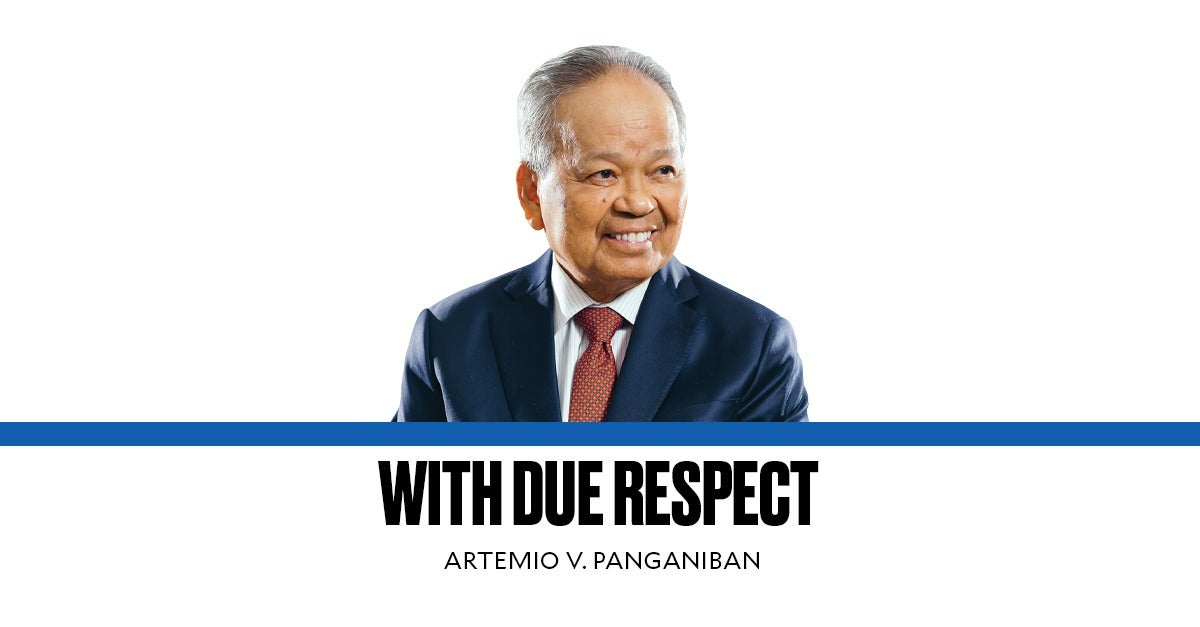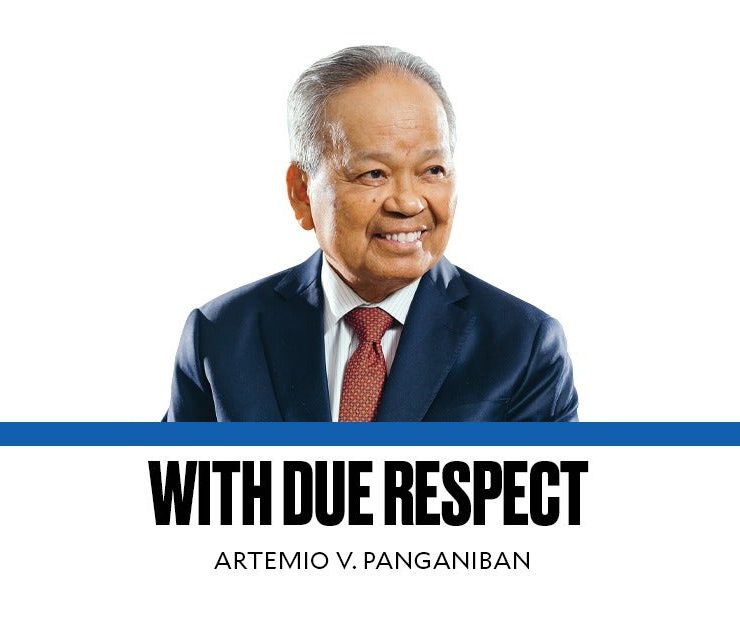The Supreme Court disciplines its members

Last Monday, I wrote that the Supreme Court defends its members, though such defense is merely an incident in performing its solemn duty to uphold the Constitution. I cited the cases of Osmena v. Fernan, In Re: Gonzales, and Francisco v. House of Representatives. Today, as promised, let me take up three samples of how the Court disciplines its members.
IN RE: 1990 BAR EXAMINATIONS, the Court adopted a resolution, dated March 22, 2000, penalizing a retiring justice “for his failure to seasonably disclose to the Court, as Chairman of the 1999 Bar Examination Committee, the fact that his nephew, son of an older brother, was one of the examinees in the 1999 Bar Examinations.”
As penalties, the Court resolved unanimously (with the erring member taking no part) “To CENSURE [him] for… breach of duty and confidence, and to DECLARE… forfeited fifty percent (50%) of the fees due him as former Chairman of the 1999 Bar Examination Committee.” In imposing the penalty, the Court considered his apology and open admission of an “error in judgment,” but “without prejudice to any further action that the Court may deem appropriate under the premises.”
IN RE: UNDATED LETTER OF MR. LOUIS C. BIRAOGO, the Court—in a lengthy unanimous (except two who were on official leave) per curiam decision, dated Feb. 24, 2009 = declared a retired justice liable for “GRAVE MISCONDUCT for leaking (while he was an incumbent) a confidential document [an “unpromulgated ponencia” of the penalized justice]… and … fined [him] P500,000 to be charged against his retirement benefits, and disqualified [him] to hold any office or employment in any branch or instrumentality of the government…; furthermore, [he] (was) directed to SHOW CAUSE… why he should not be disciplined as a member of the Bar…”
This stiff penalty was imposed because the justice concerned was proven, after extensive searches and hearings conducted by an investigating committee composed of three senior justices, to have leaked the “unpromulgated ponencia” to a party-litigant. His act “not only violated the New Code of Conduct for the Philippine Judiciary, the Code of Judicial Conduct, and the Canons of Judicial Ethics, it also infringed on the internal deliberations of the Court and impeded and degraded the administration of justice.”
REPUBLIC V. SERENO (May 11, 2018) is probably the most controversial of the cases disciplining high court justices. Voting 8-6 (the respondent took no part), the Court found then Chief Justice Maria Lourdes P. A. Sereno “DISQUALIFIED from and … adjudged GUILTY of UNLAWFULLY HOLDING and EXERCISING the OFFICE OF THE CHIEF JUSTICE … Accordingly, (she) … is OUSTED and EXCLUDED therefrom.” (Caps and bold types in original)
Further, she was also “ordered to SHOW CAUSE within ten (10) days from receipt hereof why she should not be sanctioned for violating the Code of Professional Responsibility and the Code of Judicial Conduct for transgressing the sub judice rule and for casting aspersions and ill motives to the Members of the Supreme Court.”
To add to the pain, the decision, penned by Justice Noel G. Tijam, was “immediately executory.” That is why, upon receipt of the decision, and to her great embarrassment, Sereno packed up her personal belongings in a rush and immediately left the court premises without much ado. Moreover, she was denied the usual retirement honors, emoluments, and benefits accorded to retiring justices.
These benefits are substantial because her 20 years of service as a University of the Philippines professor could be tacked onto her eight years in the Court. With 28 or so years of government service, she could be entitled to the retirement package that includes the pay of an incumbent for life, which extends to her spouse, also for life, in case she predeceases him.
Sereno was deprived of her office as chief justice (and could not return to her prior office as an associate justice) because she was ousted via quo warranto (QW), not via the constitutionally provided impeachment by the House of Representatives and removal, after due process, by the Senate. The ground or reason used was “her failure to file a substantial number of SALNs (Statement of Assets, Liabilities and Networth) as a UP professor.”
The Court held that impeachable officials may be ousted by impeachment and/or QW. When the nefarious acts were committed prior to their appointment or election, like the failure to file SALNs before being appointed or elected, then the remedy is QW. If the acts were done during their incumbency, like bribery or graft, then the remedy is impeachment. In so holding, the Court reversed Cuenco v. Fernan and In Re: Gonzalez (cited in the first paragraph) that ruled the supremes could be ousted only via impeachment and “by no other method.”
To conclude, may I say that all the actions, decisions and votes of CJ Sereno are valid. The Court has ruled in many cases that an official ousted via QW for being “ineligible” due to the “lack of a constitutional qualification” is deemed a de facto officer whose “official acts are just as valid for all purposes as those of a de jure judge, insofar as the public or third persons … are concerned.”


















